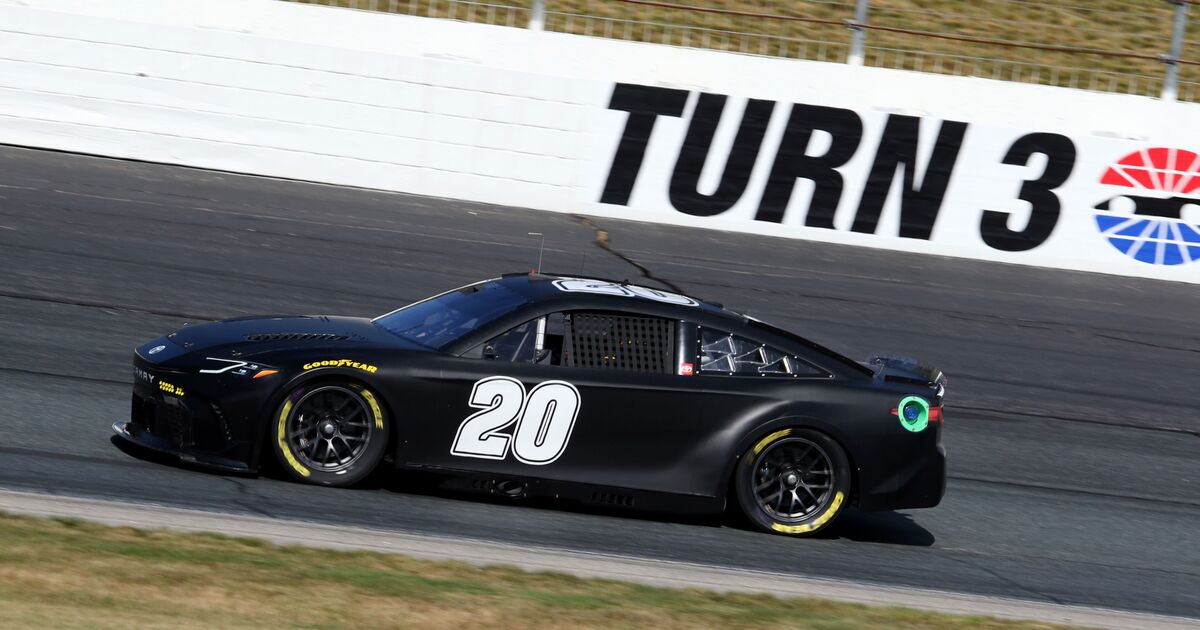A recent test at New Hampshire Motor Speedway didn’t give NASCAR the outcome that many were expecting for what they consider to be the sports biggest problem, making the ongoing battle to increase the speed of NextGen cars one that remains uphill.
On Dirty Mo Media’s ‘Door Bumper Clear’ podcast, host Tommy Baldwin, who is competition director of Rick Ware Racing in the Cup Series, revealed that the July test, which included three Cup Series stars, produced a ‘surprising’ result that did little to suggest extra horsepower will lead to drastic changes.
The debate over the NextGen car has raged louder than ever in recent weeks, with Kevin Harvick hitting out after an Iowa embarrassment, while Kyle Petty has been slammed for his ‘spectacular’ alternative view.
Discussing the solution to the current debate, Baldwin revealed: “I mean I’m not sure how much horsepower it’s going to take to make a change. I know they did try some stuff at New Hampshire couple of weeks ago in a test and they were surprised on some things that happened.”
When co-host Freddie Kraft asked if it was a good or bad surprise, Baldwin said, “I don’t think it was in a good way, which is a surprise to me because I’ve said before, ‘100 horsepower would make a difference,’ and I don’t think it made much of a difference to move the needle.”
Baldwin noted that New Hampshire’s flat, one-mile layout isn’t the easiest way to evaluate the experiment. “If you add that horsepower to places like Richmond and Martinsville and keep softening the tires a little bit more, you’re going to see better racing. But we’ll see.”
Kraft acknowledged that a simple increase in power won’t resolve the growing number of problems associated with the Next Gen car. Multiple drivers, including Denny Hamlin, have pointed to the car’s lack of horsepower and its aerodynamic design as factors that make it more challenging to overtake competitors on race day, leading to less exciting outcomes.
The issue is particularly evident on short tracks and road courses, where Baldwin proposed testing should occur. “You’re not going to flip the switch and add more horsepower and make the racing great, unless you go ridiculous, over a thousand horsepower,” he said.
DON’T MISS
That same number is what Ryan Preece suggested, as the car’s weight exceeds 3500 pounds.
“I know 1000 HP seems like a big number, but in my eyes, with the car weighing 3500 pounds, you’re gonna need a big percentage increase to notice what we’re trying to accomplish.”
The test came as fans initially thought a possible increase from 670 HP to 750 HP could happen before the end of this season. But NASCAR Senior Vice President of Competition Elton Sawyer shut that down on SiriusXM NASCAR Radio last week, confirming no changes are planned until at least 2026.
NASCAR’s horsepower saga has seen the Cup Series drop from nearly 900 HP in the Gen-6 era to 750 in 2015, 550 in 2019, and back up to 670 with the debut of the Next Gen car in 2022.

